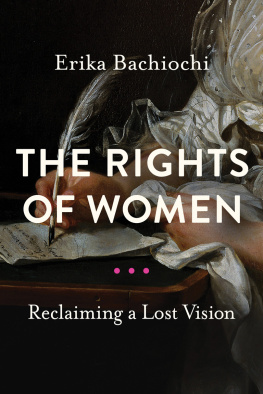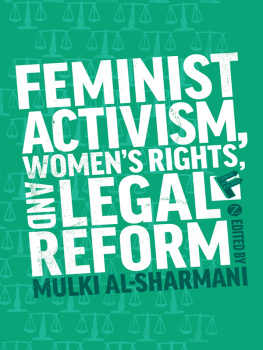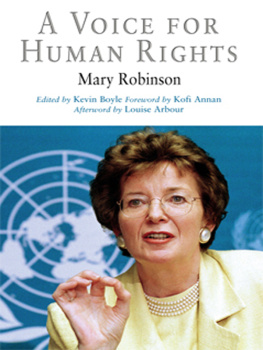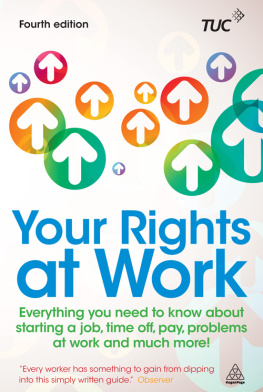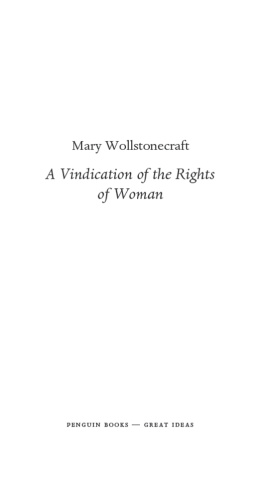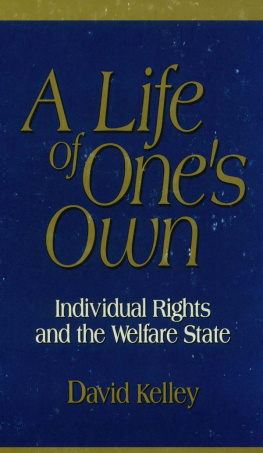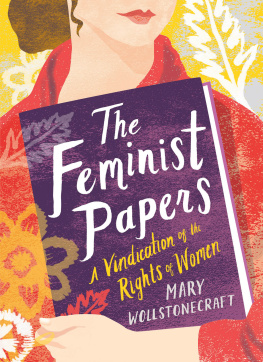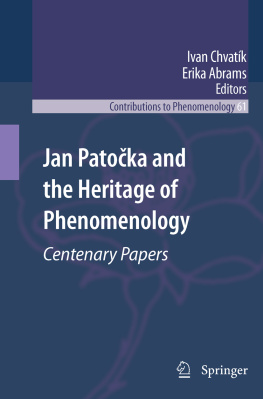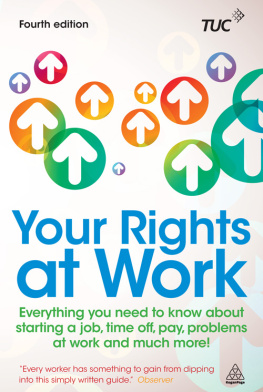Erika Bachiochi - The Rights of Women: Reclaiming a Lost Vision
Here you can read online Erika Bachiochi - The Rights of Women: Reclaiming a Lost Vision full text of the book (entire story) in english for free. Download pdf and epub, get meaning, cover and reviews about this ebook. year: 2021, publisher: University of Notre Dame Press, genre: Science / Art. Description of the work, (preface) as well as reviews are available. Best literature library LitArk.com created for fans of good reading and offers a wide selection of genres:
Romance novel
Science fiction
Adventure
Detective
Science
History
Home and family
Prose
Art
Politics
Computer
Non-fiction
Religion
Business
Children
Humor
Choose a favorite category and find really read worthwhile books. Enjoy immersion in the world of imagination, feel the emotions of the characters or learn something new for yourself, make an fascinating discovery.
- Book:The Rights of Women: Reclaiming a Lost Vision
- Author:
- Publisher:University of Notre Dame Press
- Genre:
- Year:2021
- Rating:4 / 5
- Favourites:Add to favourites
- Your mark:
The Rights of Women: Reclaiming a Lost Vision: summary, description and annotation
We offer to read an annotation, description, summary or preface (depends on what the author of the book "The Rights of Women: Reclaiming a Lost Vision" wrote himself). If you haven't found the necessary information about the book — write in the comments, we will try to find it.
Erika Bachiochi offers an original look at the development of feminism in the United States, advancing a vision of rights that rests upon our responsibilities to others.
In The Rights of Women, Erika Bachiochi explores the development of feminist thought in the United States. Inspired by the writings of Mary Wollstonecraft, Bachiochi presents the intellectual history of a lost vision of womens rights, seamlessly weaving philosophical insight, biographical portraits, and constitutional law to showcase the once predominant view that our rights properly rest upon our concrete responsibilities to God, self, family, and community.
Bachiochi proposes a philosophical and legal framework for rights that builds on the communitarian tradition of feminist thought as seen in the work of Elizabeth Fox-Genovese and Jean Bethke Elshtain. Drawing on the insight of prominent figures such as Sarah Grimk, Frances Willard, Florence Kelley, Betty Friedan, Pauli Murray, Ruth Bader Ginsburg, and Mary Ann Glendon, this book is unique in its treatment of the moral roots of womens rights in America and its critique of the movements current trajectory. The Rights of Women provides a synthesis of ancient wisdom and modern political insight that locates the familys vital work at the very center of personal and political self-government. Bachiochi demonstrates that when rights are properly understood as a civil and political apparatus born of the natural duties we owe to one another, they make more visible our personal responsibilities and more viable our common life together.
This smart and sophisticated application of Wollstonecrafts thought will serve as a guide for how we might better value the culturally essential work of the home and thereby promote authentic personal and political freedom. The Rights of Women will interest students and scholars of political theory, gender and womens studies, constitutional law, and all readers interested in womens rights.
Erika Bachiochi: author's other books
Who wrote The Rights of Women: Reclaiming a Lost Vision? Find out the surname, the name of the author of the book and a list of all author's works by series.

